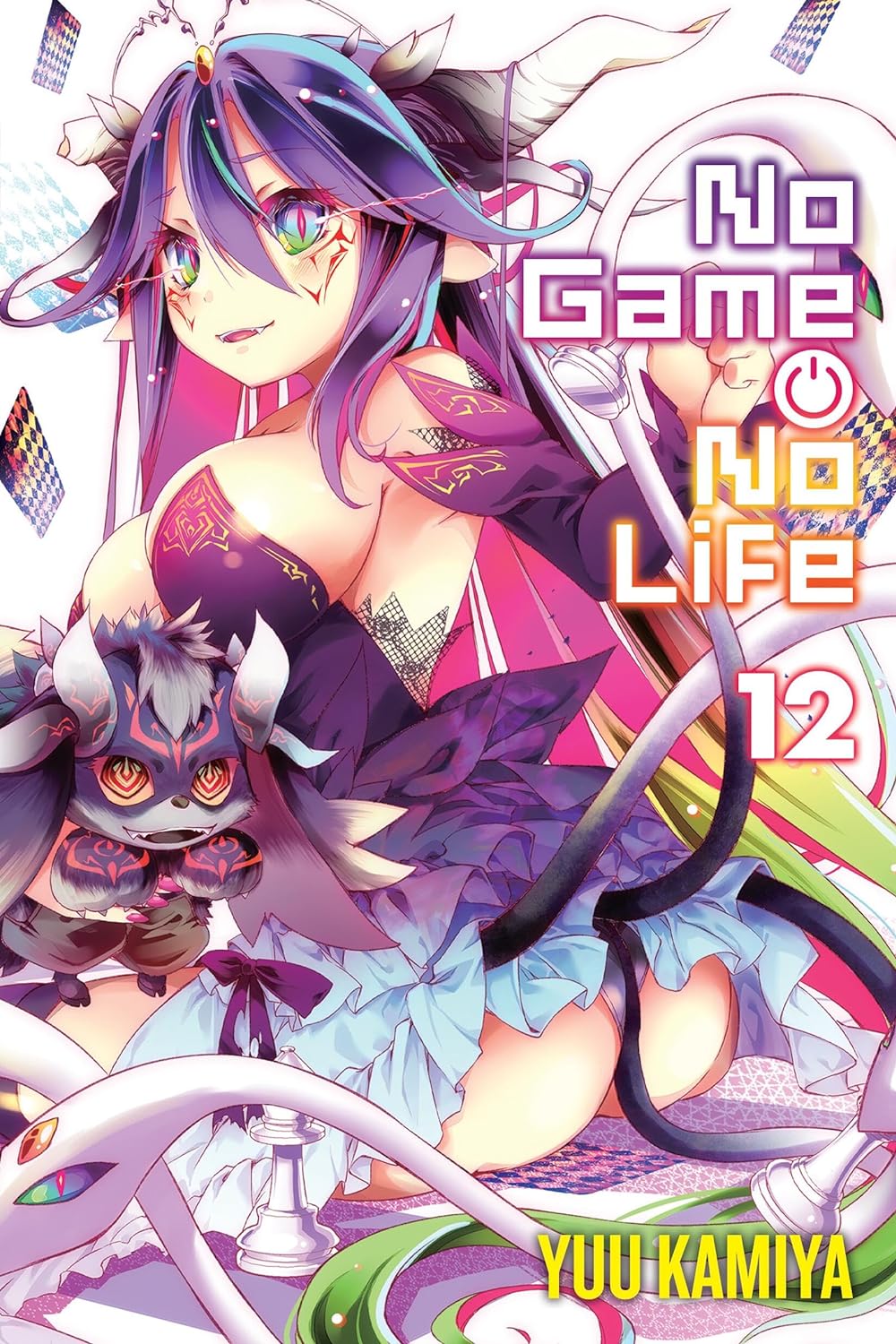By Yuu Kamiya. Released in Japan by MF Bunko J. Released in North America by Yen On. Translated by Richard Tobin.
After a few volumes where I found myself sayhing “I know, I know, it’s skeezy as hell, but you just gotta power through it”, this new volume ends up being one of the strongest in quite some time. Now, this does not mean that it’s not filled with exactly what you’d expect from No Game No Life, after all. There’s tons of Steph being humiliated, especially in the back half, and there’s also two of Sora’s “harem” giving him what amount to naked selfies so he can masturbate. It’s still not something you’d recommend to your grandma. But this volume does a great job showing off the good points of the main characters, particularly Sora and Steph, while also continuing to set up the massive conflict teased in the previous book, and also possibly setting up for a major fracture between [ ] and their strongest ally in the next volume. The whole point of these games has been “no one actually dies” – that’s why they were created. But can someone get around that?
We begin with a massive 7-day celebration of Sora and Shiro’s one-year anniversary in arriving in Disboard, as well as a birthday celebration for both of them. While neither of them are wild about this at the start, it ends up being a fun and touching party… that is interrupted by the arrival of Schira Ha, here as a representative of the Devil, and announcing that their army will finally be destroying the world. Which, um, they’ve tried before, and it hasn’t gone well. Also, the Devil is represented in Disboard by a cute little puffball thing. That said, they do have a massive tower where the goal is to get past all 100 levels, and the reward is the race piece of all the devils. The game itself is a dungeon crawl, which Sora and Shiro should have no issues with, but the game requires hope… and that’s more of an issue.
If you know my reviews of prior books, you know this is where I talk about Steph. She’s terrific at the start of the book, being emotionally sensitive, highly capable, and also knowing Sora and Shiro better than anyone else. Naturally, seeing this, I knew we were in for a giant string of “Steph gets humiliated” later on, and that’s just what happens, as she’s forced into bikini armor… which then gets destroyed, leaving her naked. But I also love the idea that SHE is the powerhouse of their dungeon group, rather than any of the far more powerful others, mostly as, while she’s certainly gotten embarrassed and exasperated and irritated, Steph doesn’t get depressed. Which leads to a heaping pile of hope. That said, the ending of the volume, where Sora has to tell her that this game will be ending with them actually having to kill someone, promises that will change soon.
All this plus their nation is losing people by the day as everyone runs away! It’s a nasty cliffhanger, and we may wait another 18 months to get it resolved, but for fans of this series, this is a must read.



